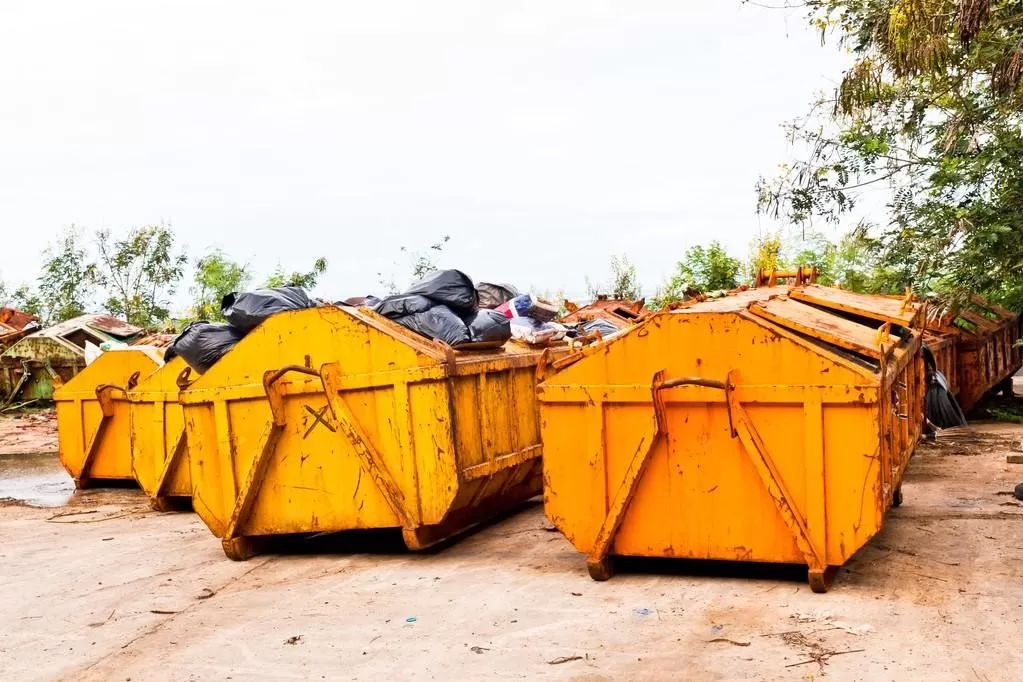Proper waste management is an essential aspect of maintaining a healthy and sustainable environment. Over the years, waste disposal methods have evolved, with advanced disposal services being the latest trend in waste management.

Advanced disposal services involve the use of modern technologies and techniques to dispose of waste safely and efficiently. If you are seeking advanced disposal services, click the link: https://tidy.com.sg/. In this article, we will delve into advanced disposal services, including the different types of disposal methods, their benefits, and how they work.
Landfills are the most common and widely used disposal method. A landfill is a designated area where waste is buried underground, isolated from the surrounding environment. Modern landfills are lined with an impermeable barrier to prevent leakage of contaminants into the soil and water bodies.
The waste is compacted and covered with soil to minimize odor, pests, and windblown debris. The landfill gas, produced by the decomposition of organic waste, is collected and converted into energy.
Incineration is the process of burning waste at high temperatures to convert it into ash and gas. The ash is then disposed of in a landfill, while the gas is treated to remove harmful pollutants before being released into the atmosphere. Incineration is a popular disposal method for medical waste, hazardous waste, and sewage sludge.
Recycling is the process of converting waste into new products, reducing the amount of waste sent to landfills or incinerators. Recycling involves the collection, sorting, and processing of materials such as paper, plastics, glass, and metals. The recycled materials are then used to manufacture new products, reducing the need for virgin materials and conserving natural resources.
Composting is the process of converting organic waste into a nutrient-rich soil conditioner. Composting involves the decomposition of organic materials such as food waste, yard waste, and animal manure in the presence of oxygen. The process produces compost, which can be used as a soil amendment to improve soil quality, fertility, and water retention.
Read Also:
Advanced disposal services help protect the environment by reducing the amount of waste sent to landfills or incinerators. Landfills and incinerators produce greenhouse gases that contribute to climate change and pollution that can harm human health and the environment. Recycling and composting reduce the need for virgin materials and conserve natural resources, while incineration reduces the volume of waste sent to landfills.
Advanced disposal services can help conserve energy by recovering energy from waste. Landfills produce landfill gas, which can be converted into energy, reducing the reliance on fossil fuels. Incineration produces steam, which can be used to generate electricity, reducing the need for electricity from non-renewable sources.
Advanced disposal services can create jobs and stimulate economic growth. Recycling and composting industries create jobs in collection, sorting, processing, and manufacturing. Landfills and incinerators can also create jobs in construction, operation, and maintenance.
Advanced disposal services involve a series of processes, from waste collection to final disposal. The processes vary depending on the type of waste and disposal method.
Waste is collected from homes, businesses, and industries and transported to a disposal facility. Waste collection methods include curbside pickup, drop-off locations, and container rentals.
The waste is sorted and processed to remove recyclable materials and hazardous waste. Recycling facilities use automated machines and manual labor to sort materials such as paper, plastics, glass, and metals. Hazardous waste is separated and stored in a designated area for proper disposal.
The waste is then disposed of in a disposal facility using one of the advanced disposal methods discussed earlier. For example, non-recyclable waste may be sent to a landfill, hazardous waste may be sent to an incinerator, and organic waste may be sent to a composting facility.
As mentioned earlier, advanced disposal services can recover energy from waste. Landfills produce landfill gas, which can be captured and converted into energy through a process called landfill gas recovery. Incineration produces steam, which can be used to generate electricity. Energy recovery reduces the reliance on non-renewable sources of energy, such as fossil fuels.
Advanced disposal facilities are monitored and maintained to ensure they operate safely and efficiently. Landfills and incinerators require regular maintenance and monitoring to prevent environmental pollution and ensure compliance with regulations. Recycling facilities require regular maintenance of machines and equipment to ensure they operate effectively.
Despite the numerous benefits of advanced disposal services, they face several challenges. These include:
Advanced disposal services can be costly to implement and maintain. Recycling and composting facilities require significant capital investment in equipment, facilities, and manpower. Landfills and incinerators require significant investments in construction, operation, and maintenance.
Some people may be resistant to advanced disposal services, particularly incineration, due to concerns about pollution and health risks. There may also be concerns about the visual impact of landfill sites on the environment and neighboring communities.
Some advanced disposal methods, such as recycling and composting, have limitations in terms of the types of waste they can process. For example, some plastics are difficult to recycle, and certain organic waste cannot be composted.
Advanced disposal services are an essential aspect of modern waste management. They offer numerous benefits, including environmental protection, energy conservation, and economic growth. However, they also face several challenges, including cost, public perception, and technology limitations.
To achieve sustainable waste management, a combination of advanced disposal methods, such as recycling, composting, and energy recovery, should be used. It is also crucial to educate the public on the importance of proper waste management and promote the use of advanced disposal services.